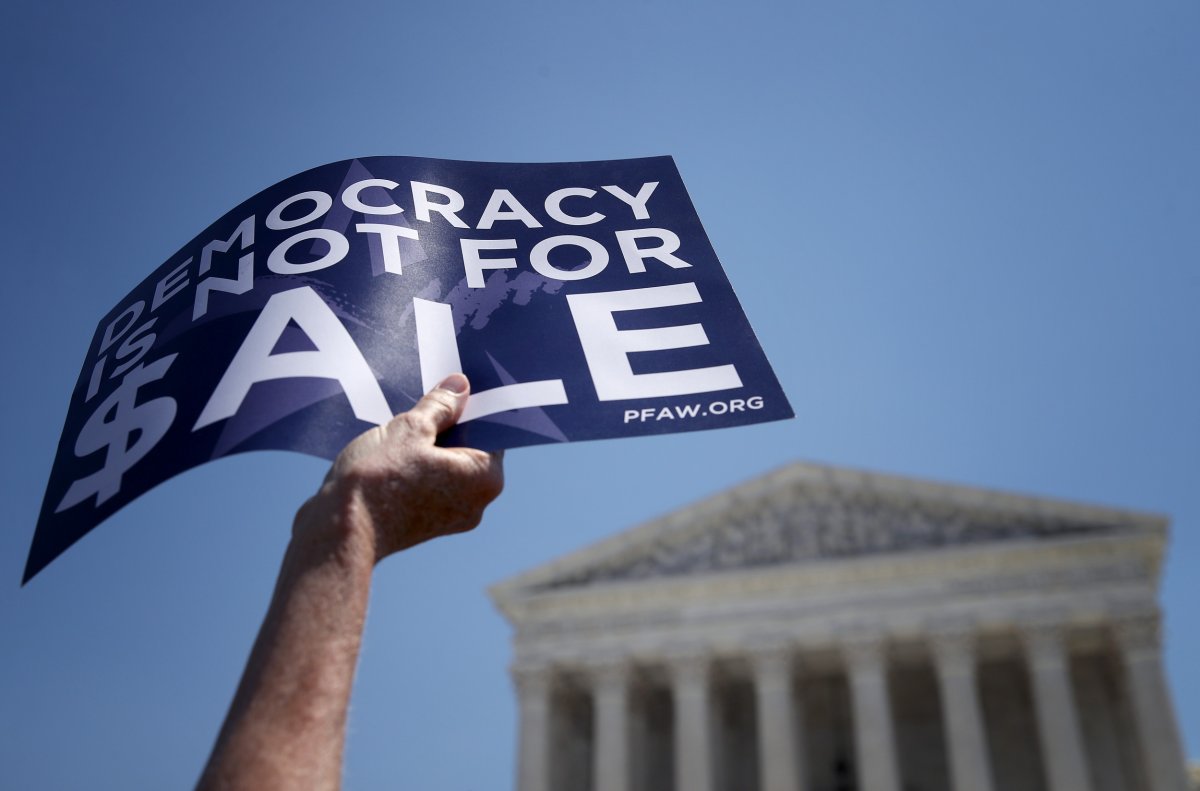It's beginning to feel a lot like AD 193 again. That year the rich bargained in plain sight to buy the job of Roman emperor. An auction was held before the cronies who controlled it—the Praetorian Guard. Senator Titus Flavius Sulpicianus squared off against Senator Didius Julianus who won with a bid worth 10 horses per guard. Rome never quite recovered its dignity.
Can America? Elections in the United States today can seem like auctions thanks to decisions like the 2010 Supreme Court ruling in Citizen's United v. Federal Election Commission. Overruling previous precedent, that 2010 decision rejected the notion that the government had a compelling interest in limiting the "corrosive and distorting effects of immense aggregations of wealth."
Those effects are now on graphic display. Outsider spending on congressional candidates went from around $204 million in 201o to $4 billion today. Spending on the 2024 presidential election has been estimated to be nearly $16 billion, tripling in today's dollars spending in 2000.

Have you ever wondered why contemporary political dialogue focuses mostly on things immensely wealthy individuals and businesses couldn't care less about? Diversity, equity, and inclusion melodramas mean nothing to them. Neither does abortion, prayer in school, or the sex lives of politicians. That's why most politicians have boldly taken positions on these issues.
But inflation? Did any candidate have credible ideas on the subject? Insurance rip-offs? It took a shooting to put them in the news. But we already knew the problems. The frustrating steps you have to go through just to get a person on the telephone—a person who too often doesn't speak English well enough to be of real help. The baseless coverage denials for doctor and dentist visits that require multiple calls and sometimes written appeals to get a couple of hundred dollars to be paid—if we don't just simply give up and pay the bills ourselves.
We know about the property insurance claims where the insurer will pay for your banged up car, but unfortunately the repair shop is charging more than the "approved rate," so you will have to pick up the difference. The airline trip with shrinking space, rising cost, reduced reliability, and ever-increasing indignity. The deal you thought you struck to buy uninterrupted videos on Netflix, Amazon Prime, and YouTube that resulted in you paying for the service only to find ever-increasing commercials popping up that you can only escape by paying more to get what you already paid for. How many in government talk about all this?
More important, who is doing anything to stop these enormously powerful companies with little effective competition as they lavish cash on political candidates and woes on the rest of us? Politicians hate asking them for money, but without campaign finance reform they are powerless.
So, what can be done? Certainly, individuals facing pygmy armies of small grievances can't do much against these goliaths on their own, but government can—if it only would. The Federal Trade Commission has the power to oppose companies that develop strangleholds over our lives by using antitrust laws. The FTC and the attorneys general of every state in the union also have the power to pursue unfair trade practice violations against every single one of them. Finally, in court, groups of gouged consumers can bring class actions.
The bad news for Americans is that money has so badly wrenched the gears of our democratic institutions that in the federal government we replaced people who didn't do enough for consumers with people who are planning to do even less. That may leave matters up to the states and consumers. The states have power but face influence too. Consumers in legal cases may face arbitration clauses that kick them out of courts that have increasing skepticism of class actions because the cases too often yield more money for lawyers than for their clients.
The solution to what ails America is to reduce the influence of the vastly wealthy on government by reconsidering ill-thought-out court rulings permitting unlimited expenditures and for agencies and consumers to use consumer laws to achieve real results in court. The prospects now don't look so good, but the first step is to know what we want done. Then, someday, if our institutions are to survive, they must act.
Thomas G. Moukawsher is a former Connecticut complex litigation judge and a former co-chair of the American Bar Association Committee on Employee Benefits. He is the author of the new book, The Common Flaw: Needless Complexity in the Courts and 50 Ways to Reduce It.
The views expressed in this article are the writer's own.



















 English (US) ·
English (US) ·